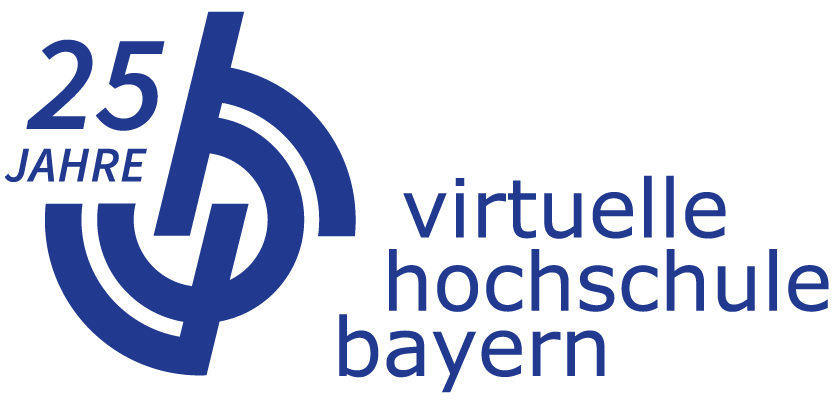Flourishing Together: Strengthening Team Health and Collaboration in Hybrid and Virtual Work
Flourishing Together: Strengthening Team Health and Collaboration in Hybrid and Virtual Work
| Angeboten von: | Prof. Dr. Sandra Niedermeier, Prof. Dr. Katrin Winkler | ||
| Anbietende Hochschule: | HAW Kempten | ||
| Kurssprache: | Englisch | ||
| Wissensgebiet: | Schlüsselqualifikationen | Kostenfrei | |
| Durchschnittliche Bearbeitungszeit: | 15 Stunden | Kostenfrei | Einschreiben |
| Bildnachweis: Bild wurde mit DALL-E (KI) erstellt. | |||
Was können Sie in diesem Kurs lernen?
The following is a more detailed overview of the content, which may change slightly during the project:
- Background and current challenges for organisations
- Discussion of the rise of absenteeism and mental illness in the modern workplace. The rise of virtual and hybrid forms of work (new work)
- Analysis of the pressure on teams to adapt to constantly changing conditions
- The importance of healthy teams for innovation and performance
- Examining the positive impact of healthy teams on productivity and creativity
- Studies on the growing importance of teams in today's working world
- Team health in relation to hybrid and virtual teams- Definition and characteristics of team health
- Explain the concept of team health and its different dimensions
- Identify the key characteristics of healthy teams
- General understanding of health and its influence on team health
- Examine the relationship between individual health and team health
- Analyse the interrelationships between general health concepts and team health
- Differences between individual and team health
- Identify the differences and similarities between individual and team health
- Explain why it is important to consider both
- Self-care and personal skills
- Providing techniques and strategies for self-care and self-reflection
- Development of personal skills to cope with stress and challenges
- Stress management and resilience strategies
- Introduction to various stress management strategies and techniques for building resilience in teams
- Importance of resilience in hybrid and virtual work environments
- Self-reflection and self-management in hybrid and virtual teams
- Providing methods for effective self-reflection and self-management in hybrid and virtual teams
- Analysing the challenges and opportunities of self-management in teams in virtual work environments
- Psychological foundations of group dynamics with a focus on trust
- Exploring the concept of group dynamics from a psychological perspective and its relevance to team health
- Strategies for creating a trusting working atmosphere in hybrid and virtual teams.
- Communication and conflict management in hybrid and virtual teams
- Teaching effective communication strategies and techniques for use in hybrid and virtual teams.
- Consideration of the central challenge of the "groupthink phenomenon" and methods to avoid it.
- Discussion of conflict management approaches and their application in remote working environments
- Fostering team dynamics and cooperation in virtual and hybrid teams
- Explore methods to improve team dynamics and collaboration in hybrid and virtual teams
- Identify best practices and tools to support productive and healthy teamwork
- The role of the manager in promoting team health in virtual and hybrid teams
- Exploring the responsibility of leaders in creating healthy work environments
- Measures and technical tools to support healthy teams
- Presentation of concrete measures and technical tools that managers can use to promote team health
- Organisational factors and their influence on team health
- Analysing the role of organisational structures and cultures in supporting team health
- Benefits and advantages of focusing on team health for organisations
- Describe the positive impact of promoting team health on employee performance and well-being.
In these five modules, the OPEN vhb course will deal with various aspects of team health in hybrid and virtual teams, with a focus on shaping relationships and the role of leaders. In addition to basic psychological concepts (e.g., group dynamics, the phenomenon of groupthink), the course will also include current digitalization topics.
Gliederung
The course covers five main areas of study, with an introductory module and a final module::
Course objectives and structure
1.1 Background and current challenges for organisations
1.2 The importance of healthy teams for innovation and performance
1.3 Team health in relation to hybrid and virtual teams
2.1 Definition and characteristics of team health
2.2 General understanding of health and its influence on team health
2.3 Differences between individual and team health
3.1 Self-care and personal skills
3.2 Strategies for stress management and resilience
3.3 Self-reflection and self-management in hybrid and virtual teams
4.1 Psychological basics of group dynamics with focus on trust
4.2 Communication and conflict management in hybrid and virtual teams
4.3 Team dynamics and cooperation in virtual and hybrid teams
5.1 The role of the leader in promoting team health in virtual and hybrid teams
5.2 Measures and technical tools to support healthy teams
5.3 Organisational factors and their influence on team health
Closing lesson
Angeboten von

Prof. Dr. Sandra Niedermeier is a professor for Digitalization in Education and Society at Kempten University of Applied Sciences. She heads the "Digitalization in Education and Society" department for the Institute of Digital Transformation. Her experience in the design, execution, and evaluation of eLearning and blended learning proposals, synchronous and asynchronous learning formats, face-to-face and virtual workshops, training for trainers and lecturers, and presentations forms the backbone of her activities. She received her doctoral degree from the Chair of Empirical Pedagogy and Educational Psychology at LMU Munich, where she also worked for several years as a research assistant. She was also the head of the Profit Centre at the Bildungswerk der Bayerischen Wirtschaft (bbw) and responsible for digital learning media.

Prof. Dr. Katrin Winkler has been a professor at the HAW Kempten for over 10 years. Her areas of expertise include topics related to corporate strategy such as Human Resource Management, Change Management, Talent Management, and Knowledge Management. Since January 2023, her main focus is on Leadership. She recently published an insightful forward-looking book "Connectedness – Leadership for a Changing World" (Winkler & Bramwell, 2020). Prior to this, she worked as an executive at various companies, where she actively supported the promotion of other women working in these companies. In her book, she combines this extensive practical experience with scientific findings, offering practical recommendations for successful leadership in the era of digital transformation. Her next book due to be released in summer 2024 is about Team Health in Virtual and Hybrid contexts.
Weitere Mitwirkende

Svenja König is a business psychologist (M.A.) and research associate at the Institute for Digital Transformation in Work, Education and Society at the University of Applied Sciences Kempten. One of her tasks there is the content and didactic design of online trainings. Her work focuses on cooperation in hybrid teams and the development of future talents in the context of future skills. Another focus of her work is team health in the context of her own research project and her involvement in the design of this course.

Rekha Pinto started her career as an architect in the late 90s. She moved to Germany eleven years ago and in due course changed her work direction. She currently works at the Institute for Digital Transformation at the University of Applied Sciences, Kempten. Here she uses her creative skills & tools mainly to design & visualise course content for interactive modules in virtual learning environments.

Since 2022, Lisa Herb has been a member of the team at the Institute for Digital Transformation in Work, Education and Society at the University of Applied Sciences Kempten. With a Master's degree in Business Psychology (M.A.), she contributes to the institute's work by providing insights into the design of courses and projects. In her role at the institute, she oversees and supports a variety of projects aimed at promoting digital expertise and transformation.
Zielgruppe
In the face of these challenges, it is vital that companies and organisations develop targeted strategies to promote and maintain team health in a digitalised workplace. This includes addressing communication, collaboration, self-care, and organisational factors that contribute to creating a healthy and supportive work environment.
With digital networking, the importance of virtual and hybrid teams is increasing. These are no longer only the norm for multinational companies with locations all over the world. Small and medium-sized companies are also increasingly having to deal with the issue of digital collaboration.
The topic of team health is particularly important in times of new work and the current dynamics of digitalisation for several reasons:
Digitalisation has led to new ways of working, including hybrid and virtual teams. These new working structures pose new challenges for the health and well-being of teams, as they require adapted communication and collaboration methods.
Digitalisation has increased the speed and complexity of work processes. Teams are under increased pressure to keep up with the pace of change, which can lead to stress and psychological strain.
In virtual and hybrid work environments, employees often have less personal interaction with their colleagues. This can increase feelings of isolation and alienation, which in turn can affect team wellbeing and health.
Digitalisation allows teams to work more flexibly and independently of fixed working hours and locations. While this has its advantages, it can also lead to difficulties in separating work and private life, which can contribute to exhaustion and burnout.
Digitalisation has led to the fact that technologies and working practices are constantly evolving. Teams must continuously adapt and learn new skills to keep up, which can cause additional stress and pressure.
Leaders need to adapt their leadership styles and practices to changing work environments in order to effectively support team health in hybrid and virtual work environments.
Bescheinigung der Teilnahme
To receive a "Certificate of participation" for this course you must answer 70% of the tasks correctly.
The certificate will be generated automatically and does not embrace a grade or credit points.
